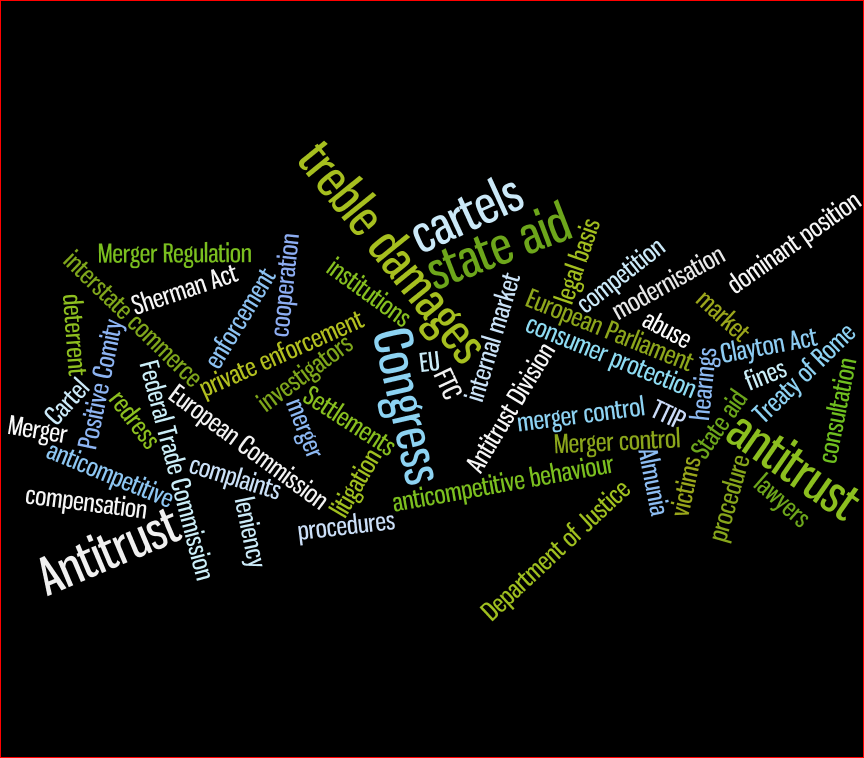Both the EU and the US have well-developed competition policies that aim to prevent and penalise anticompetitive behaviour.
 Although the EU and US systems share similar aims, there are a number of significant differences. The EU has an administrative system for antitrust enforcement, in which companies are penalised with fines. In contrast, US antitrust enforcement is based on criminal law, with financial and custodial penalties against individuals. Private enforcement plays a greater role in the US system, where victims of anticompetitive behaviour are awarded damages treble the amount of the actual damage suffered.
Although the EU and US systems share similar aims, there are a number of significant differences. The EU has an administrative system for antitrust enforcement, in which companies are penalised with fines. In contrast, US antitrust enforcement is based on criminal law, with financial and custodial penalties against individuals. Private enforcement plays a greater role in the US system, where victims of anticompetitive behaviour are awarded damages treble the amount of the actual damage suffered.
Merger control in the EU, carried out solely by the European Commission, is more centralised than in the US. In order to ensure fair competition in the internal market, EU competition policy has strict rules on state aid, whereas US legislation has no provisions in this area.
EC and US competition authorities cooperate on cases which affect both jurisdictions. The question of state aid may be raised in the on-going EU-US negotiations for a Transatlantic Trade and Investment Partnership.
While the European Parliament (EP) is only consulted on matters of competition policy, the US Congress plays a more active role. High-profile merger cases in the US are subject to close scrutiny from Congress, including Congressional hearings.








Be the first to write a comment.